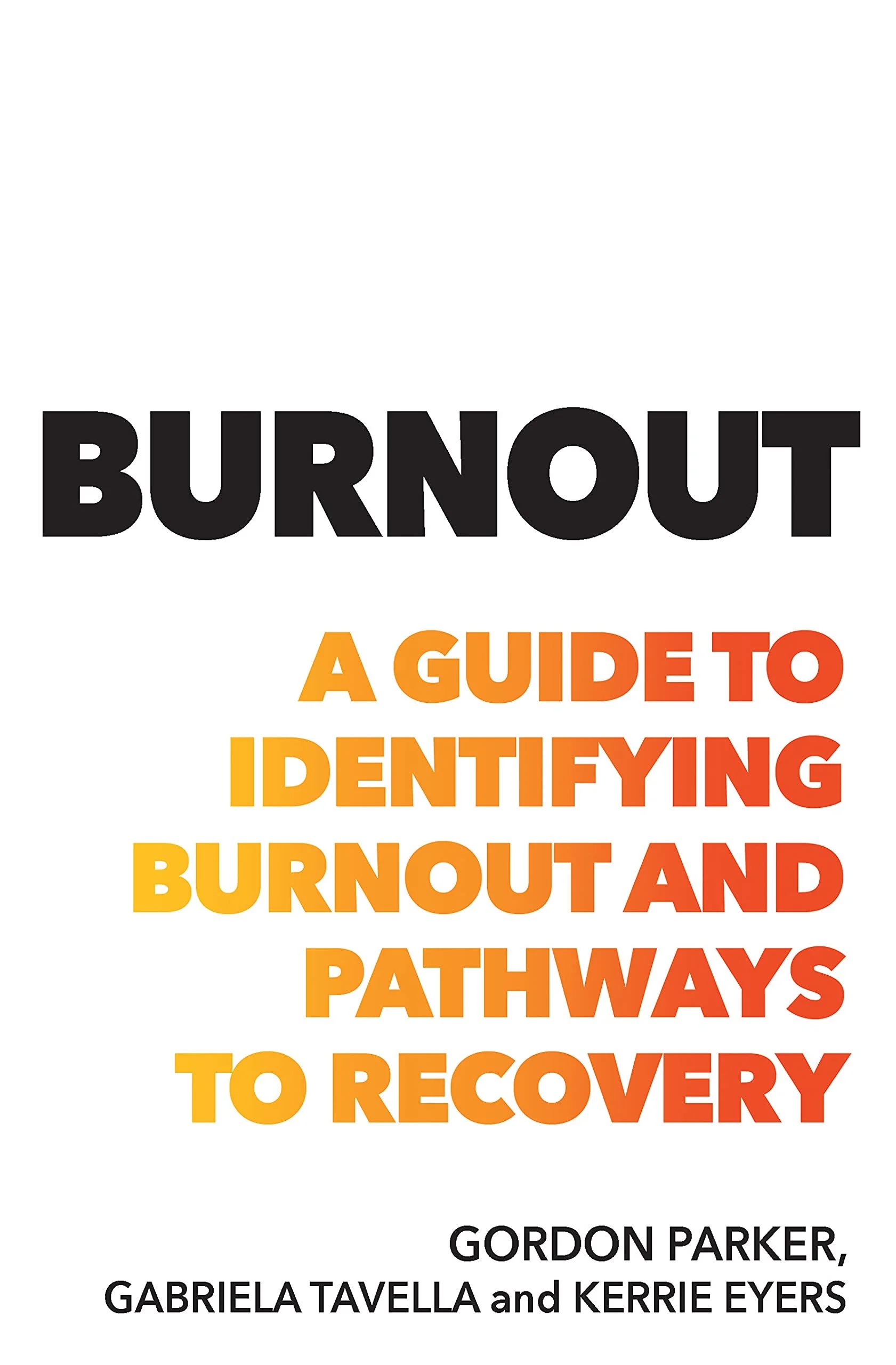Dr. Gordon Parker: Pioneering Researcher and Deep Thinking Podcast Guest
We're thrilled to announce that the renowned psychiatrist and researcher Dr. Gordon Parker is featured as a special guest on the Deep Thinking Podcast. In preparation for this insightful episode, we've compiled a comprehensive profile of Dr. Parker's groundbreaking work and contributions to our understanding of mental health conditions, particularly in the areas of mood disorders and burnout.
Who is Dr. Gordon Parker?
Dr. Gordon Parker AO is an Australian psychiatrist and Scientia Professor of Psychiatry at the University of New South Wales. As the founder of the Black Dog Institute, a facility for diagnosis, treatment, and prevention of mood disorders, he has dedicated his career to advancing our understanding of depression, bipolar disorder, and more recently, burnout.
With over 40 years of clinical and research experience, Dr. Parker is internationally recognized for challenging conventional diagnostic models and developing more nuanced approaches to mental health conditions. His work combines rigorous scientific methodology with compassionate understanding of the patient experience.
Key Theories and Contributions
The Sub-typing of Depression
One of Dr. Parker's most significant contributions is his work on differentiating types of depression. Contrary to the one-size-fits-all approach often used in diagnosis, Dr. Parker has pioneered the identification of distinct depression subtypes, including:
Melancholic Depression: Characterized by biological symptoms like psychomotor disturbance and non-responsiveness to environmental factors
Non-Melancholic Depression: More responsive to psychotherapy and often triggered by life stressors
Psychotic Depression: Involving hallucinations, delusions, or other psychotic features
This sub-typing model has profound implications for treatment selection, helping clinicians move beyond the trial-and-error approach that has long dominated depression management.
The Mood Assessment Programs (MAPs)
Dr. Parker developed several assessment tools to improve diagnostic accuracy, including:
The Sydney Melancholia Prototype Index (SMPI)
The Mood Assessment Program (MAP)
The Temperament and Personality Questionnaire (T&P)
These evidence-based instruments have enhanced clinical assessment and research capabilities worldwide.
Burnout Research and the "Modern" Pandemic
In recent years, Dr. Parker has turned his attention to burnout, which he identifies as a modern pandemic affecting professionals across various fields. His work distinguishes burnout from depression while acknowledging their overlapping features.
Dr. Parker's research on burnout emphasizes:
The role of perfectionism and Type A personality traits as vulnerability factors
The impact of organizational and systemic factors beyond individual resilience
The development of clear diagnostic criteria to better identify and treat burnout
His 2021 book, "Burnout: A Guide to Identifying Burnout and Pathways to Recovery," co-authored with Gabriela Tavella, presents a comprehensive model for understanding and addressing burnout, drawing on extensive clinical experience and research data.
Significant Studies
The Sydney Depression Study
This landmark longitudinal study tracked patients with various depression subtypes, demonstrating different trajectories and treatment responses based on depression classification. The findings challenged the conventional view of depression as a single disorder and provided evidence for more targeted treatment approaches.
Black Dog Institute Burnout Study
Dr. Parker led a comprehensive study examining burnout across different professions, identifying both common features and profession-specific manifestations. The research involved detailed interviews with hundreds of individuals experiencing burnout, leading to the development of more precise diagnostic frameworks.
Treatment Efficacy Research
Dr. Parker has conducted numerous studies evaluating the comparative effectiveness of different treatments for depression subtypes, demonstrating that treatment selection based on depression subtype improves outcomes significantly compared to standard approaches.
Key Publications
Books
Parker, G., & Tavella, G. (2021). Burnout: A Guide to Identifying Burnout and Pathways to Recovery. Allen & Unwin.
Parker, G. (2016). A Piece of My Mind: A Psychiatrist on the Couch. Pan Macmillan Australia.
Parker, G., & Paterson, A. (2015). Mellow Out: A Guide to Managing a Mood Disorder. Allen & Unwin.
Parker, G. (2011). Bipolar II Disorder: Modelling, Measuring and Managing. Cambridge University Press.
Parker, G. (2009). Modelling and Managing the Depressive Disorders. Cambridge University Press.
Selected Academic Publications
Parker, G., et al. (2022). "Defining burnout as a psychiatric disorder." British Journal of Psychiatry, 220(2), 65-72.
Parker, G., & McCraw, S. (2020). "The properties and utility of the CORE measure of melancholia." Current Opinion in Psychiatry, 33(1), 1-6.
Parker, G., et al. (2017). "Issues for DSM-5: Whither melancholia? The case for its classification as a distinct mood disorder." American Journal of Psychiatry, 167(7), 745-747.
Parker, G., et al. (2013). "Atypical depression: A valid subtype?" Journal of Clinical Psychiatry, 63(10), 1037-1041.
Parker, G. (2000). "Classifying depression: Should paradigms lost be regained?" American Journal of Psychiatry, 157(8), 1195-1203.
Dr. Parker on the Deep Thinking Podcast
In our exclusive interview with Dr. Parker on the Deep Thinking Podcast, we explore the nuances of burnout, including:
How burnout differs from depression and chronic fatigue
The role of personality traits in burnout vulnerability
Organizational factors that contribute to burnout culture
Evidence-based approaches to recovery and prevention
Policy implications for workplaces and healthcare systems
Dr. Parker shares insights from decades of clinical experience and cutting-edge research, offering listeners practical strategies for identifying and addressing burnout in themselves and others.
Why Dr. Parker's Work Matters
Dr. Parker's contributions extend beyond academic significance—they have transformed how we conceptualize, diagnose, and treat mental health conditions. By challenging oversimplified models and advocating for more nuanced approaches, his work has improved treatment outcomes for countless patients.
His recent focus on burnout comes at a crucial time, as professionals across sectors face unprecedented pressures. Dr. Parker's evidence-based approach cuts through pop psychology and offers genuine pathways to understanding and recovery.
Don't miss our in-depth conversation with Dr. Gordon Parker on the Deep Thinking Podcast, available on all major podcast platforms. Subscribe now to receive notifications when this special episode is released.
© 2025 Deep Thinking Podcast. All rights reserved.
Parker, G., Tavella, G., & Eyers, K. (2021). Burnout: A Guide to Identifying Burnout and Pathways to Recovery. Allen & Unwin.

